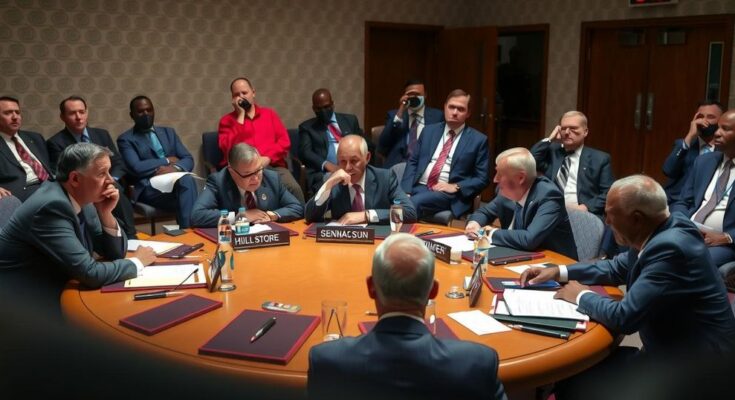The UN Security Council discussed the imperative to halt ongoing violence in eastern DRC, focusing on the political turmoil and insecurity exacerbated by armed groups like the ADF and M23. Special Representative Bintou Keita emphasized the need for international support for regional peace efforts. With a summit on December 15, collaboration among DRC, Angola, and Rwanda aims to drive lasting peace amidst continued humanitarian challenges and gender-based violence.
On Monday, the UN Special Representative for the Democratic Republic of the Congo (DRC), Bintou Keita, briefed the Security Council regarding the alarming situation characterized by political disagreements and escalating violence in the eastern provinces of the country. Specifically, she highlighted the activities of several armed groups, including the ADF, M23, CODECO, and Zaïre, contributing to ongoing instability in North Kivu and Ituri. Although Ms. Keita emphasized the importance of mediation efforts spearheaded by Angola, acknowledging the potential positive impact of the upcoming summit on December 15, she underscored the necessity for comprehensive support from both the international community and regional partners.
The Democratic Republic of the Congo has been embroiled in conflict for decades, primarily focused on the eastern regions where various armed groups vie for control and exploit natural resources. Political instability has compounded the humanitarian crisis, with substantial displacement affecting millions of civilians. The UN Stabilization Mission in the DRC (MONUSCO) has been actively involved in mediating talks and supporting governance reforms to restore peace and stability. Current efforts center on fostering collaboration among nations of the Great Lakes region to combat violence and promote sustainable peace initiatives.
In summation, while commendable steps toward establishing peace have been made, significant challenges remain as the DRC confronts armed groups, political tensions, and humanitarian crises. A concerted effort that includes local, national, and regional engagement is essential for achieving sustained stability. The voices and perspectives of vulnerable populations, particularly women and displaced individuals, must inform and guide the implementation of peacebuilding strategies to ensure an inclusive approach to recovery and reconciliation.
Original Source: news.un.org




